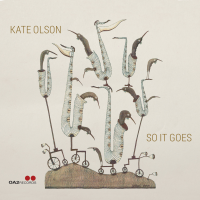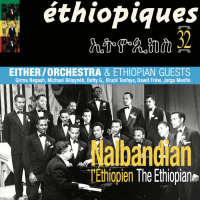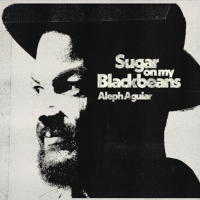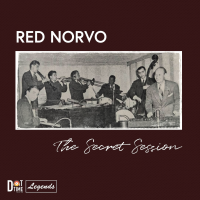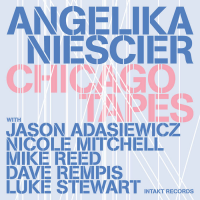Home » Jazz Articles » Album Review » Trevor Tomkins' Sextant: For Future Reference
Trevor Tomkins' Sextant: For Future Reference
Drummer and percussionist Trevor Tomkins was of the previous generation of musicians who were the movers and shakers on the London scene. In 2023 still too recent to lionize, Tomkins' generation did much to break the prevailing perception of British jazz as an underwhelming reflection of its American parent. Tomkins is to be found on many important albums of the late 1960s and 1970s, far too many to list here, from the Don Rendell / Ian Carr 5Tet's Dusk Fire (Columbia, 1966) through to Neil Ardley's Kaleidoscope Of Rainbows (Gull, 1976) and Barbara Thompson's Jubiaba (MCA, 1978).
Remarkably, given his talents and the esteem in which he was held by his peers, Tomkins, who passed in 2022 aged 82 years, never made an album under his own name. So For Future Reference is both Tomkins' debut and memorial as a leader. Fortunately, he kept the tapes of the BBC sessions and the estimable Jazz In Britain label has released the album in cooperation with his estate.
Sextant's lineup came together pretty much by happenstance, when at short notice Tomkins was asked to assemble a band for a pub gig and called on five friends. Although he was nominally its leader, Sextant was cooperative in spirit, with all the members free to put forward material. The personnel, which remained essentially unchanged throughout the group's existence, was multi-reedist Jimmy Hastings, trombonist Chris Pyne, guitarist Phil Lee, pianist John Horler, bassist Paul Bridge, and Tomkins. On one of the sessions heard here, Brian Smith deps for Hastings.
Tomkins once said that his favourite bands were John Coltrane's quartet and Bill Evans' trio, and Sextant combined the sinew of the first with the melodicism of the second. Most of the tunes are originals by Lee and Horler, with others by Stan Sulzmann, Ralph Towner, Cedar Walton and Kenny Wheeler. There is not a dud among them, but two standouts are Horler's "Three Four Peace" and "Evansong," both salutes to Evans. Hastings, Pyne, Lee and Horler all have plenty of solo space, and Tomkins, who always had to be dragged unwillingly towards that spotlight, has all too few.
Track Listing
CD1: Chapter One; GRS; Celeste; Ugetsu; ‘Smatter; Early Spring; Your Eyes Are Love; The Right Moment. CD2: Zemlja; Summer Night; Three Four Piece; Evansong; Your Dancing Toes; For Future Reference; Ballad No. 1.
Personnel
Trevor Tomkins
percussionJimmy Hastings
woodwindsBrian Smith
drumsChris Pyne
trombonePhil Lee
guitar, electricJohn Horler
pianoPaul Bridge
bass, acousticAdditional Instrumentation
Trevor Tomkins: drums; Jimmy Hastings: soprano and tenor saxophones, flute, bass flute; Brian Smith: soprano and tenor saxophones, flute; Chris Pyne: trombone, bass trombone; Phil Lee: electric guitar, 12-string guitar; John Horler: piano, electric piano; Paul Bridge: bass.
Album information
Title: For Future Reference | Year Released: 2023 | Record Label: Jazz In Britain
Tags
PREVIOUS / NEXT
Support All About Jazz
 All About Jazz has been a pillar of jazz since 1995, championing it as an art form and, more importantly, supporting the musicians who make it. Our enduring commitment has made "AAJ" one of the most culturally important websites of its kind, read by hundreds of thousands of fans, musicians and industry figures every month.
All About Jazz has been a pillar of jazz since 1995, championing it as an art form and, more importantly, supporting the musicians who make it. Our enduring commitment has made "AAJ" one of the most culturally important websites of its kind, read by hundreds of thousands of fans, musicians and industry figures every month.














